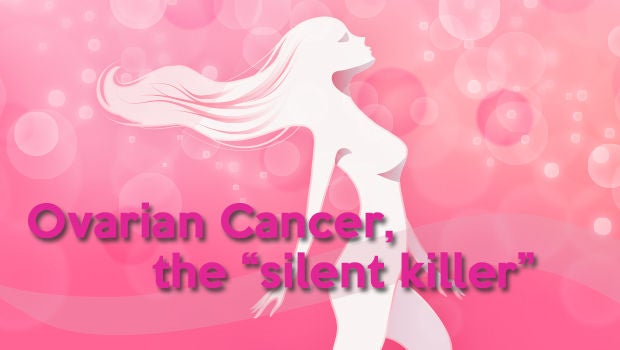
The clinical trial will test the use of immunotherapy to improve treatment for ovarian cancer, the seventh most common cause of cancer-related deaths in women.
By Sue-Ann Tan, The Straits Times
SINGAPORE – Researchers are testing a new treatment for ovarian cancer, which is known as a “silent killer” because symptoms rarely appear till the advanced stages of the disease, making it difficult to detect and treat early.
The new treatment taps the body’s immune response in a form of treatment called immunotherapy, considered to be less toxic than chemotherapy.
Scientists at the National Cancer Centre Singapore (NCCS) are conducting a clinical trial to test this new treatment for advanced and recurrent ovarian cancer.
The treatment combines two immunotherapy cancer drugs, not currently used for ovarian cancer management, into a single treatment. NCCS associate consultant Jack Chan said at a press conference on Tuesday (Sept 19) that this is the first time these drugs are being combined as such.
Ovarian cancer is the seventh most common cause of cancer-related deaths in Singapore women, and is the second most common gynaecological cancer among women in Singapore.
Dr Chan said: “There has been a new case of ovarian cancer almost every day in Singapore for the last five years.”
A total of 1,797 new cases of ovarian cancer were diagnosed from 2011 to 2015, according to the Singapore Cancer Registry. In that period, 634 women died of the disease.
Chemotherapy is the standard treatment for ovarian cancer. But it does not work well in relapse cases, said Dr Chan.
“Each time we try to treat ovarian cancer when it relapses, the chance of success gets lower. A new form of treatment may be a lifeline for patients with relapse,” he added.
Dr Chan, who is one of the leaders in the clinical trial, said that in the past two years, more research has been done on immunotherapy. This form of treatment may produce fewer side effects than standard chemotherapy. It is also considered less toxic and may not kill healthy cells the way conventional cancer treatment does.
Thus, immunotherapy is not expected to hinder a patient’s quality of life the way chemotherapy does, said Dr Chan.
The two drugs being combined for the treatment are Oregovomab, a cancer vaccine, and Nivolumab, which is used to treat advanced melanoma, non-small cell lung cancer, kidney cancer, bladder cancer and Hodgkin lymphoma.
Phase I and II of the clinical trial will test the safety and effectiveness of the combined treatment in 20 patients with ovarian cancer. These two phases, run concurrently, started in May. So far, eight patients have been recruited.
Ovarian cancer is the seventh most common cause of cancer-related deaths in Singapore women, and is the second most common gynaecological cancer among women in Singapore.
At the press conference, NCCS also announced the 25th anniversary of Run for Hope next year. The annual event seeks to spread awareness of cancer research and raise funds to support it.
It has been co-organised by Four Seasons Hotel, Regent Singapore and NCCS since 2008, and has raised close to $1.5 million for the National Cancer Centre Research Fund.
The run will take place on Jan 21 next year and hopes to draw about 12,000 people. There are two categories – 10km and 3.5km.
Registration for the run is open till Oct 31 for early bird participants, and till Jan 8 for final registrants. Those who are interested in the run can register at http://runforhope.sg
SOURCE: THE STRAITS TIMES SINGAPORE PRESS HOLDINGS LIMITED. REPRODUCED WITH PERMISSION.
Contributed by














 Get it on Google Play
Get it on Google Play